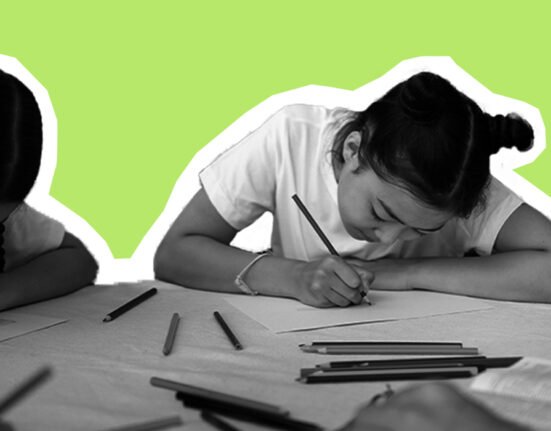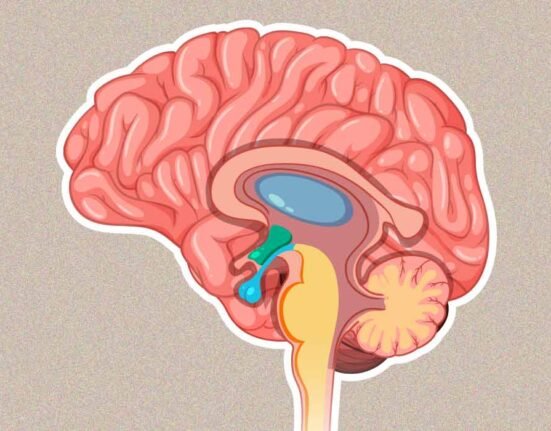Psychology contains many branches, which deal with different subjects. For example, clinical psychology deals with the disorder a person faces in their life. In the same manner, One branch of psychology that deals with the human mental processes such as thinking, attention, memory, their problem-solving ability is known as Cognitive psychology. Several significant research and theories in cognitive psychology have had a huge impact on our society in understanding the human mind and behavior. This article will talk about what cognitive psychology is, and how it relates to learning and education.
Cognitive Psychology
Cognitive psychology is the study of all the mental processes that run in our mind like attention, memory, and how we perceive things present in our environment. Cognition is a Latin word that means, “To know”. It deals with the processes that occur inside our heads and cannot be said always.
Cognitive psychology relates to the field of learning and education in many ways, these include:
1. Information processing model
The first, and most important model to understand how cognition works in learning is information processing. It tells about how a person acquires a piece of information and then encodes and retrieves it whenever it is required. This model can help in teaching strategies and other assessment methods. It consists of several important stages:
1) Input
The first stage of this model is Input. In this stage the sensory information is perceived from the environment through our sensory organs like vision, hearing, smelling, etc. This information is generally stored in our minds for a small amount of time.
2) Encoding
The second stage is encoding, where the person tries to understand certain information truly. This stage is different from input one as one truly understands the meaning of info rather than just attending to it.
3) Storing
After understanding the meaning of the information one tries to store it for the future. Based on the attention he paid to information it is further stored in short and long-term memory.
4) Retrieval
The last and important stage of the model is retrieval when a person tries to recollect all the information that he stored in his long-term memory whenever it is required. It is used for decision-making, making, and problem-solving.
With the help of this model, we can understand how a student attends, encodes, and stores the information and remembers it whenever it is needed.
2. Social, and cultural development
Many sociocultural theorists such as Vygotsky and Albert Bandura through their theories make people understand how social and cultural aspects impact one’s life. These theories and research put their emphasis on social and environmental factors that in turn help to shape one learning ways.
Also Read: VARK Model: Exploring The Learning Styles
It is so fascinating that a person learns by observing others and being a part of the group. These social and cultural influences influence emotions, thoughts, and behaviors. One of the theories of Vygotsky proves that a learner learns something from the other more knowledgeable person, through his theory of the zone of proximal development.
For example: A child learns how to drive a bicycle with the help of his grandfather and the grandfather here is the more knowledgeable other.
This effect can be visible in today’s learning. Earlier, teachers told learners that they should connect on their own. But now, educators try to create an environment where can learner try to connect with their subject. Proper explanation and illustration of reasons that the lesson may give, lead students to improve their motivation and try to make connections between practicality and abstract things.

Cognitive learning theory
This theory also plays a crucial part, when attempting to understand cognitive psychology in learning and education. Cognitive learning helps to maximize one brain’s potential and makes it easy to connect with different ideas.
This theory has a major positive impact on learning:
- Firstly, it enhances learning which helps in the long run. Because of this enhancement in learning, one can work more on their previous ideas and can add new concepts to their existing knowledge.
- Secondly, it improves problem-solving abilities. During the process of learning, one should be able to solve any problem with efficiency. In today’s world, one should be street smart as well as, analytical so that one can deal with real-life problems and, this could be possible when educators teach learners about problem-solving. The educator also put their focus more on abstract thinking as well.
- Lastly, it boosts one confidence and gives motivation to perform in their tasks. This theory of motivation helps educators make them understand the importance of intrinsic motivation which in turn increases learners’ motivation.
Also Read: Beyond Limitations: Valuable Insights From Learning Disabilities
Cognitive Load Theory
Another important theory that plays an important role in learning is to understand Cognitive load theory. As this theory explains how we can reduce the unnecessary load on the learner’s minds so they can promote and optimize the learning. Whenever the working memory of a student gets overloaded it becomes hard to understand and this results in learning slowly. This working memory becomes overloads, which makes it difficult to transfer in their long-term memory:
- Whenever the student is entitled to a complex topic, without proper teacher guidance.
- When they have to understand the unnecessary information because it has some connection with the main topic
- When a student is exposed to a very tough task but due to lack of expertise in that task
- When there are many interrelated topics in a subject it makes difficult for them, as they have to spike their attention according to that.
Also Read: Buddy System: Learning the Importance of Mutual Understanding
All these cognitive theories play an important in our learning and education. This branch of psychology deals with something that runs behind the scenes and cannot be said, however, with the help of various aspects of these theories. It makes it easy for us to understand these unsaid thoughts.
You can read these books to get interesting knowledge about cognitive psychology
- Cognitive Biases: A Fascinating Look into Human Psychology
- Fundamentals of Cognitive Psychology
- Cognitive Psychology













Leave feedback about this